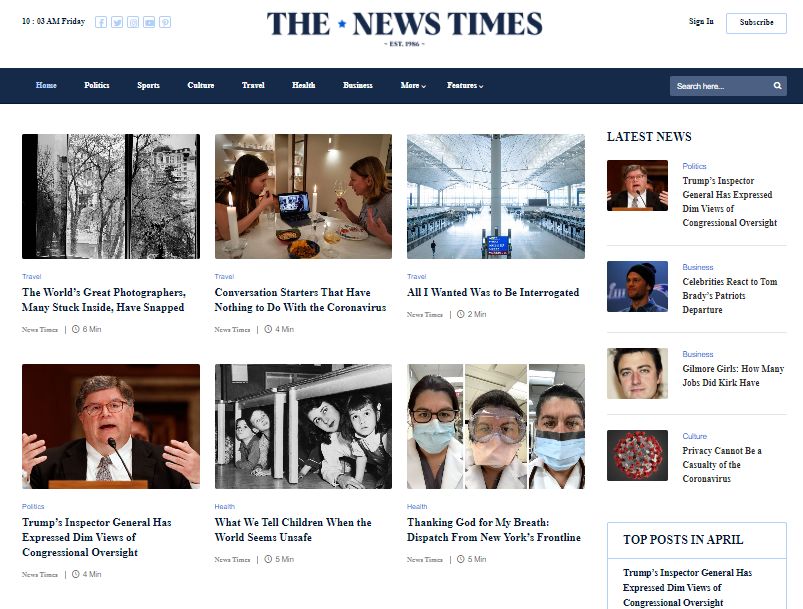What You Need to Know About stnews.live in 2025
The Relevance of Fact-Checking worldwide of News Online
The occurrence of misinformation in today's on the internet news landscape has reached startling levels. Fact-checking organizations play a crucial duty in counteracting this fad. They confirm claims and enhance the integrity of journalism. Nonetheless, the effectiveness of these companies commonly rests on their methods and public understanding. As audiences browse this complex environment, the ramifications of their searchings for might shape the future of news intake and count on. What does this mean for the stability of details moving forward?

The Rise of Misinformation in the Digital Age
Exactly how has the arrival of electronic innovation contributed to the spread of misinformation? The quick growth of the net and social media systems has helped with the circulation of info at an extraordinary speed. Customers can share articles, video clips, and opinions with a mere click, commonly without validating the material's precision. Formulas focus on mind-blowing or mentally billed material, bring about an expansion of deceptive narratives that record focus.
In addition, the privacy paid for by digital systems permits people to spread incorrect info without accountability (stnews.live). Misinformation thrives in echo chambers, where individuals are exposed mainly to point of views that strengthen their beliefs, better entrenching fallacies. The saturation of information can bewilder individuals, making it challenging to discern reliable resources from unstable ones. False information has actually come to be a pervasive issue in the digital landscape, affecting public viewpoint and trust fund in reputable news sources.
The Duty of Fact-Checking Organizations
Fact-checking companies play an important duty in enhancing the reputation of journalism by confirming claims made in report. Their initiatives are essential in combating false information, ensuring that precise info dominates in the electronic landscape. By holding media outlets responsible, these companies contribute substantially to informed public discourse.
Enhancing Credibility in Journalism
While false information multiplies in the electronic age, fact-checking organizations play an essential function in enhancing the integrity of journalism. These companies meticulously validate claims made in newspaper article, public declarations, and social media sites posts, ensuring that details distributed to the public is accurate and credible. By providing independent analyses, they act as a crucial source for journalists, assisting them maintain high criteria of integrity. Furthermore, their efforts promote openness in media, promoting public trust fund. As audiences become significantly critical, the visibility of reliable fact-checking entities can differentiate reliable news sources from those that may spread falsehoods. Eventually, the dedication of fact-checking organizations to promote reliability is critical for the health and wellness of autonomous discourse.
Combating False Information Properly
As misinformation remains to spread out rapidly throughout electronic platforms, the role of fact-checking companies ends up being increasingly vital in the battle for exact details. These organizations serve as watchdogs, looking at insurance claims made by somebodies and media outlets to assure responsibility. By using strenuous research techniques and expert evaluation, they verify realities and clear up deceptive stories. Their findings are shared with numerous networks, educating the public and fostering important reasoning. In enhancement, collaborations with social media platforms boost their reach, enabling prompt flagging of incorrect info. As digital proficiency expands, the impact of fact-checking companies is essential in empowering target markets to discern fact from fallacy, inevitably adding to a much more educated society.
How False Information Affects Public Perception
False information considerably undermines rely on media, leading audiences to wonder about the reputation of news sources. Consequently, people often gravitate towards electrical outlets that reinforce their present beliefs, contributing to the polarization of point of views. This dynamic produces a fragmented details landscape, where shared comprehending becomes significantly difficult to attain.
Count on Media

Rely on media has come to be increasingly vulnerable in the electronic age, where the rapid spread of false details can skew public assumption. As misinformation multiplies across social media and online systems, audiences frequently locate it challenging to recognize qualified sources from unstable ones. This uncertainty fosters suspicion, leading lots of people to question the intentions behind news reporting. Count on in established media electrical outlets has actually decreased, as customers increasingly transform to alternative sources that may lack strenuous content standards. This erosion of depend on not only influences specific ideas yet also undermines the collective capacity to engage in informed discussions. Eventually, the integrity of journalism is at stake, highlighting the crucial requirement for reliable fact-checking to restore self-confidence in the media landscape.

Polarization of Opinions
The raising hesitation towards typical media has actually contributed to a growing polarization of point of views amongst the public. Misinformation, usually disseminated with social media and online platforms, plays a significant duty fit distinct ideological divides. Individuals often look for info that straightens with their pre-existing beliefs, reinforcing their viewpoints while disregarding opposing point of views. This echo chamber result magnifies divisions, resulting in a fragmented public discourse where agreement comes to be significantly evasive. Additionally, sensationalized stories thrive in this atmosphere, even more skewing public assumption and promoting distrust in qualified sources. As polarization rises, the requirement for efficient fact-checking comes to be extremely important to connect gaps and promote educated conversations, eventually making sure a much more cohesive culture efficient in steering complicated problems.
Methods for Effective Fact-Checking
Effective fact-checking depends on a systematic approach that includes comprehensive study, confirmation of sources, and critical evaluation of insurance claims. A foundational strategy is cross-referencing information from numerous reputable resources to validate its precision. Fact-checkers frequently utilize specialized data sources and archives to map the origin of specific statements, making certain that the reported details aligns with recorded evidence.
An additional important technique involves scrutinizing the context in which claims are provided. Misleading details can emerge from out-of-context quotations or selective information usage. By examining the wider narrative, fact-checkers can recognize prospective prejudices or misconceptions.
Moreover, involving with professionals in relevant fields can supply quality and understanding that improves the fact-checking procedure. This cooperation can uncover subtleties that laypeople might neglect - stnews.live. Ultimately, a regimented method integrating these methods cultivates a much more informed public, enhancing the reliability of information distributed in the electronic age
The Impact of Social Media Site on News Intake
How has social media transformed the means people eat news? The appearance of platforms like Facebook, Twitter, and Instagram has significantly modified news consumption original site patterns. News is now disseminated swiftly, enabling individuals to access real-time updates and engage with content through sort, shares, and remarks. This immediacy has actually fostered a preference for bite-sized details, frequently at the expenditure of thorough evaluation.
Social media makes it possible for personalized news feeds, where formulas curate web content based on individual choices, creating echo chambers that may restrict exposure to diverse point of views. The function of typical news outlets has reduced as people significantly count on peer recommendations and trending topics. As a result, the credibility of info is often compromised, as sensationalism can eclipse valid coverage. On the whole, social media has actually improved news intake, highlighting rate and customization while challenging the requirements of journalistic stability.
Encouraging Target Markets to Recognize Reputable Sources

In addition, examining the authorship and organizational background of news write-ups can expose potential biases. Cross-referencing information throughout several respectable electrical outlets additionally boosts the verification process. Using digital devices, such as browser extensions that rank the integrity of web sites, can also aid in identifying reliable details. By proactively involving with these resources and cultivating an important attitude, audiences can better furnish themselves to determine dependable news resources, ultimately cultivating a much more informed society among the intricacies of today's media setting.
The Future of Journalism and Fact-Checking
As the media landscape progresses, the future of journalism and fact-checking faces both challenges and opportunities. The rise of electronic platforms has democratized details circulation, allowing varied voices to arise. This has additionally led to the proliferation of false information, requiring durable fact-checking devices. Reporters will progressively depend on modern technology, consisting of AI devices, to verify truths quickly and effectively.
Partnership between news organizations and fact-checking entities is prepared for to strengthen reliability and transparency. Target market interaction will certainly play an essential duty, as notified readers end up being substantial companions in identifying trustworthy material.
The need for liability and accuracy is likely to expand, pushing journalists to support high requirements in my company their coverage. Inevitably, the future of journalism might hinge on its capability to adjust to technical developments while keeping journalistic stability, making certain that fact-checking stays a foundation of trustworthy news.
Frequently Asked Concerns
Just How Can I Report Misinformation I Experience Online?
To report misinformation run into online, individuals can make use of platform-specific coverage tools, provide clear evidence, and share the information with fact-checking companies. Involving with area discussions can also assist elevate recognition this website about the false information.
What Prevail Indicators of Misinformation in News Articles?
Common signs of false information in newspaper article include marvelous headlines, lack of reputable sources, psychological language, inconsistent truths, and lack of author credentials. Visitors must seriously evaluate web content for these signs to recognize precision.
Just How Do Fact-Checkers Validate Sources?
Fact-checkers confirm sources by cross-referencing details with trustworthy data sources, seeking advice from professionals, and analyzing the original context of cases. They likewise assess the integrity of the resources, ensuring exact and trustworthy details for public consumption.
What Lawsuits Can Be Taken Versus False information?
Legal activities versus misinformation may consist of libel legal actions, cease-and-desist orders, and regulative fines. Targets can prosecute through civil courts, while some territories impose penalties or sanctions on systems disseminating false details.
Exist Apps for Fact-Checking News On-The-Go?
Various applications exist for fact-checking news on-the-go, including Snopes, FactCheck.org, and PolitiFact. These applications help users validate insurance claims promptly, promoting educated decision-making and fostering a more discerning method to consuming news in real-time.